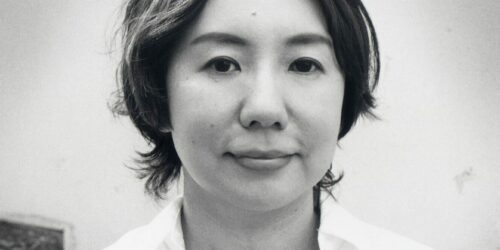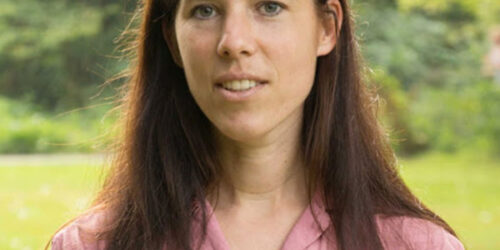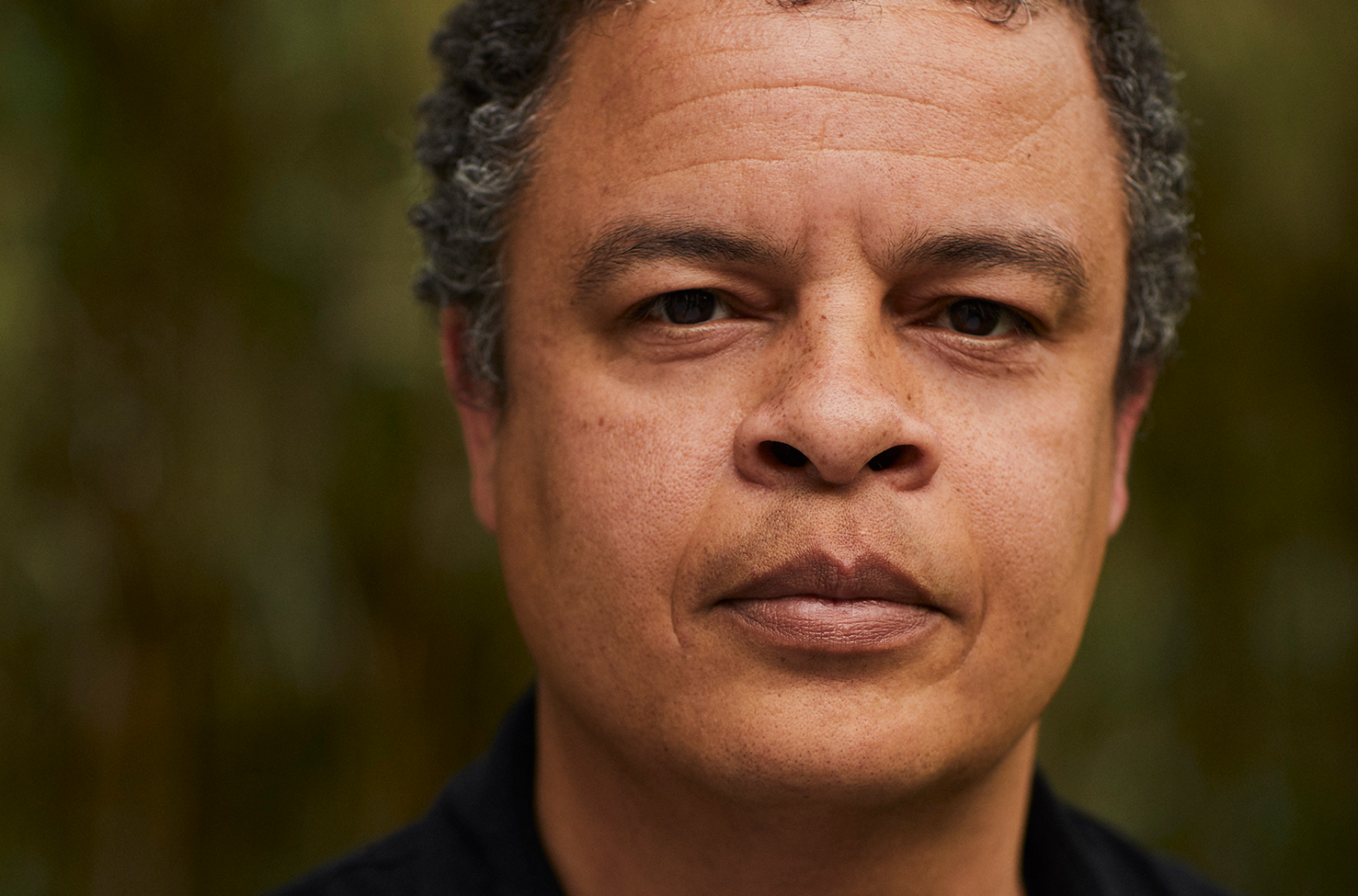
Dutch-Aruban poet Alfred Schaffer recently took part in a Dutch to English workshop led by Michele Hutchison at the BCLT Summer School 2021. The workshop was generously supported by the Dutch Foundation for Literature. Here, they reflect on the merits and challenges of working on a group translation of a poem.
Michele Hutchison
I’ve been translating Alfred’s poetry for a number of years now for magazines and festivals. Last year our first full collection together as poet and translator, Man Animal Thing, was published by Eyewear. It’s a wonderfully creative reimagining of the life of African king Shaka Zulu, I really recommend it. I’ve always worked closely with Alfred on the translations, I send him an early draft with all my questions and he replies with explanations and suggestions. The process is fairly slow and by the end I’ve probably had at least four versions of each poem which I then still keep on fiddling with. How different this is from the speed translations produced during a workshop!
We worked on a couple of multi-sectioned poems from Alfred’s latest collection wie was ik (literally – who was I – no caps, no question mark, reduced punctuation being one of his trademark effects). In my usual practice I’m a compulsive checker of dictionaries and the thesaurus but we set about the first stanza as a group, firing off suggestions and not looking up anything. I’m not a great fan of consensus translation but it’s a very useful exercise to remind us of how differently people interpret a text and how many variations are possible. The problem with consensus translations in general is you can never really get the entire group to agree and some simply shout louder than others who politely give in. You often end up playing it safe. It is also tricky to produce a coherent sense of voice. When we broke up into smaller groups, the translations of subsequent stanzas produced showed more individual touches of flair. I get a kick from seeing a wild and beautiful take on a line of verse, those moments when something is most definitely found in translation.
I really enjoyed working with our group this year and I think most of us were proud of the translation we presented during the final session. I was delighted to see snatches of it quoted on Twitter. Working on Zoom is intense and when the workshop week ends a strange vacuum is created. I got up the next day, sat down at my computer again and continued with my own translation of wie was ik, all those other voices and takes on it rushing around my mind.
‘I get a kick from seeing a wild and beautiful take on a line of verse, those moments when something is most definitely found in translation’
Alfred Schaffer
Initially I thought it would be too difficult for my work to be the subject matter of this year’s Dutch workshop and be a co-leader. A bit of a double bind. It worked out so well though, thanks to Michele and the participants; I was really moved by the final product.
It turned out, as it always does, that having your poetry translated highlights aspects of the work you yourself are unaware of. The translation of one particular poem (translated as ‘Set-building in the dark for dummies: a report’) showed me that this text, however ‘experimental’, really is my account of how difficult it is to write about someone you loved, and who you try to retain and recreate in writing. The group translation showed how true or close this poem was to me. Somehow I hadn’t realised this while writing it. Michele made a wonderful PowerPoint of it, and presenting the poem in English at the end of the week, read by all translators involved, was an unforgettable experience. A gift.
The whole week highlighted once again how translating poetry is such an intense, precise, technical and sometimes frustrating activity, but in the end it is mostly rewarding and emotional, both as translator and as author of the translated work. The art of translating brings to light personal hang-ups, cultural and political backgrounds and differences, funny and beautiful language specificities, and makes you have to think about contexts and ethical issues. In this sense, translation is one of the most vital parts of a society, especially the one I live in. South Africa, with its rampant inequality, diversity, difficult history and various official languages, can only maintain a sort of continuum using translation as a means of truly understanding each other.
‘Translation is one of the most vital parts of a society, especially the one I live in’
Well, that is all very heavy and serious of course, but we did have lots fun as well! The mood was relaxed and easy going, and personally I loved the reverse translation that we did, as a break, in which we translated a Dutch translation of a poem (‘My erotic double’) by John Ashbery back into English. It was a wonderful group to work with, with Geoffrey in Istanbul, Joanna in Brussels, Arienne in Leiden, Megan in Amsterdam, Vivien in Amersfoort, Fiona Harris in Wooburn Green, Lauren in Sheffield, Claudette in Oxford, and Jozef in London. Without lockdowns and social distancing this translation week would have been even better. ‘Live from Norwich!’ we would have had the chance to meet people from the other groups as well (and there were so many different groups and approaches). But, in spite of the digital setup, it all worked well without mayor technical hiccups. The fact that Michele and I have known each other for such a long time already, and have been working together for such a long time too, really helped to make the whole week familiar and ‘safe’ from the outset.
SET-BUILDING IN THE DARK FOR DUMMIES: A REPORT
1. [let’s get this party started]
I’m still where I stood I can’t stand it.
unafraid to shout hello is anyone there
this terrifying sight, reefs vanished
beneath and tropical fish hello is anyone
there this scorching hourglass sand why
was I washed ashore, why don’t I say what I want
to say hello there then it’s said. where should I
stand where should I begin.
2. [created and made]
floods of light here floods of colour only twenty percent then
this thing dies: no feelgood ending to save me.
talking straight into the shaky screen
of my waterproof action camera
about harmony family ties love etcetera
offers little comfort because time, time goes on.
is that music or is it the wind I hear.
3. [formed of the dust of the ground]
I don’t believe in fairy tales or if I should say nothing
of what stays hidden from view without a
compass. of the purest seconds in which you
fly down a sand dune in the half-light.
the muted presence of musicality.
a sun-drenched whisper the whole damn day all that
whispering until I’m utterly hoarse.
4. [pleasant to the sight and good for food]
from the old stump of a palm tree, hewing out
a likeness. I chop and chop and chop until I
lose sight of the image entirely! chopping shaving praying
oh what fun bits keep breaking off. my foot traces
a sort of square in the sand, staking out my place
in a confined space. a day of meandering on
a small scale I dread to think of it. with this pathetic
scrap of life in my arms, as if I cannot shake off
my own self as if we run headlong into mayhem together.
5. [let there be lights in the firmament of heaven]
an electrical inkblack mush beyond recognition
just above the sea. ready to fight to shriek I don’t
fall for it. my thatched boat is sturdy steadfast
the ropes pulled tight and inside light shines I feel
my grip slipping slow. a sign
of life I know for sure has me in sight
I jump and I shout I wave my arms wild.
if only in my head.
6. [in approach you are no longer remembered]
the bird-eater tattoo that inspects
my right arm restless. the quenching water
that plummets from a great height down –
no ravine here only short strides.
the shrill gloss stretched like a tarp
over this sandbank all the smells
I can name. pushed by the urge
to finally fall asleep. the same urge
that keeps me awake.
7. [to rule over the day and over the night]
my hidden body crouches there smeared with
chalk. a deep brown blot just above
something edible this bleeding eye this boiling heart
and water earth fire and air. a curse evaporates
in this heat so who or what should I turn to
because I’m deaf and dumb and oh the sun far too
bright such violence deep in the coldest regions.
8. [gave up their dead]
no story without batting an eye.
not in science not in the open air.
was that a distant explosion I heard? like the
perfect pop of a very small star
a long time ago hello there does that sound right?
swirling metal and rock. sand in my hair
in my eyes and my lungs. a lab rat
snuffling at its own image in a mirror:
of course it’s not the same. who am I here I am.
The Dutch group consisted of:
- Geoffrey Ballinger (Istanbul, Turkey)
- Joanna Britton (Brussels, BE)
- Arienne van den Dries (Leiden, NL)
- Megan M. Garr (Amsterdam, NL)
- Vivien D. Glass (Amersfoort, NL)
- Fiona Harris (Woodburn Green, Bucks, UK)
- Lauren Harris (Sheffield, UK)
- Claudette Sherlock (Oxford, UK)
- Jozef van der Voort (London, UK)
- Led by Alfred Schaffer (Cape Town, SA) & Michele Hutchison (Amsterdam, NL)
- With thanks to BCLT, UEA and the Dutch Literary Foundation
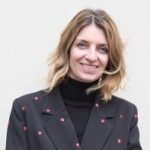 Michele Hutchison was born in Solihull and studied at UEA, Lyon and Cambridge universities. She moved to Amsterdam in 2004 and has translated more than 35 books of various genres, including the winner of the 2019 Vondel Translation Prize, Stage Four by Sander Kollaard and the winner of the 2020 Booker Prize, Marieke Lucas Rijneveld’s The Discomfort of Evening. Recent and forthcoming translations include Miek Zwamborn’s The Seaweed Collector’s Handbook (Profile), Man Animal Thing by Alfred Schaffer (Eyewear) and Grand Hotel Europa by Ilja Leonard Pfeijffer (4th Estate). Image (c) Victor Schiferli
Michele Hutchison was born in Solihull and studied at UEA, Lyon and Cambridge universities. She moved to Amsterdam in 2004 and has translated more than 35 books of various genres, including the winner of the 2019 Vondel Translation Prize, Stage Four by Sander Kollaard and the winner of the 2020 Booker Prize, Marieke Lucas Rijneveld’s The Discomfort of Evening. Recent and forthcoming translations include Miek Zwamborn’s The Seaweed Collector’s Handbook (Profile), Man Animal Thing by Alfred Schaffer (Eyewear) and Grand Hotel Europa by Ilja Leonard Pfeijffer (4th Estate). Image (c) Victor Schiferli
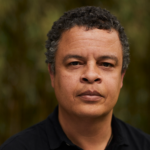 The Dutch-Aruban poet Alfred Schaffer (1973) currently works as a lecturer at Stellenbosch University, South Africa. He made his poetry debut in 2000, and has published several well-received volumes of poetry since then. His most recent collections are Mens Dier Ding (Man Animal Thing, 2014) and wie was ik. strafregels (who was I. penalty rules, 2020). December 2020 it was announced that he is the recipient of P.C. Hooft prize 2021, the most prestigious literary prize in the Netherlands for an oeuvre (essay, prose or poetry).
The Dutch-Aruban poet Alfred Schaffer (1973) currently works as a lecturer at Stellenbosch University, South Africa. He made his poetry debut in 2000, and has published several well-received volumes of poetry since then. His most recent collections are Mens Dier Ding (Man Animal Thing, 2014) and wie was ik. strafregels (who was I. penalty rules, 2020). December 2020 it was announced that he is the recipient of P.C. Hooft prize 2021, the most prestigious literary prize in the Netherlands for an oeuvre (essay, prose or poetry).
You may also like...
Tomoka Shibasaki & Polly Barton
Novelist and short story writer Tomoka Shibasaki collaborates with Japanese translator and writer Polly Barton

16th September 2021
Chi Ta-wei & Jeremy Tiang
Translator, fiction writer, and academic researcher Ta-wei Chi in conversation with novelist, playwright and translator Jeremy Tiang

9th September 2021
Eva Meijer talks about Animal Languages
Kate Griffin talks to our former writer in residence

10th July 2020



